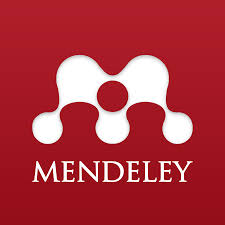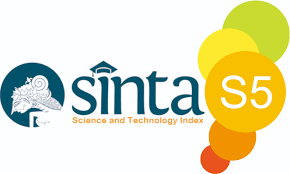Kontribusi Modal Sosial dalam Kesuksesan Revitalisasi Permukiman Kumuh Kota Palembang
DOI:
https://doi.org/10.30872/geoedusains.v3i2.1659Keywords:
Social Capital, Revitalization, Slums, CitiesAbstract
Slum settlements are one of the problems in developing countries, including in Indonesia, one of which is in the city of Palembang. One way to reduce slum settlements is by revitalizing them. One of the revitalization of slum settlements carried out by the people of Palembang City is located in the 26 Ilir sub-district by turning the slum settlements into a clean and beautiful area which is carried out in mutual cooperation which is the social capital owned by the community. In simple terms, social capital can be understood as productive assets owned by each individual in a group or society that can be developed and utilized to achieve goals for mutual benefit. This research focuses on the social capital owned by the community in turning slum settlements into Kampung Sayur Cempako, Kelurahan 26 Ilir, Palembang City. This study uses a qualitative method with a descriptive approach. Methods of data collection consisted of observation, interviews with ten informants who were determined purposively, and documentation. The results of the study show that social capital in the form of mutual cooperation, norms, networks, trust, reciprocity, and proactive actions owned by the community can help the community overcome obstacles in revitalizing slum areas
Downloads
References
Afiffah, Z. (2019). Pengaruh kepercayaan dan harapan terhadap kebahagiaan pernikahan buruh migran yang menjalani hubungan jarak jauh. Fakultas Psikologi UIN Syarif Hidayatullah Jakarta.
Afriadi, A. (2021). Pengertian Antropologi Hukum.
Biringkanae, A., & Tammu, R. G. (2022). Revitalisasi tongkonan sebagai daya tarik wisata dalam upaya peningkatan ekonomi masyarakat desa wisata Kole Sawangan. Journal of Tourism and Economic, 5(2), 186–198.
Creswell, J. W. (2009). Research Design Pendekatan Penelitian Kualitatif, Kuantitatif, dan Mixed. Yogyakarta: Pustaka Pelajar.
Hapsari, H., & Hardayani, H. (2023). The Role of Indigenous Knowledge in Achieving a Flood Resilient Society in Flood Risk Area of Musi River, Case Study: 3-4 Ulu Palembang, Indonesia. Proceedings of the 3rd Sriwijaya International Conference on Environmental Issues, SRICOENV 2022, October 5th, 2022, Palembang, South Sumatera, Indonesia.
Harahap, D. Y., & Agusta, I. (2018). Peran modal sosial terhadap kesejahteraan pengusaha sektor informal (kasus pengusaha sektor informal di Pasar Jl. Dewi Sartika, Bogor). Jurnal Sains Komunikasi Dan Pengembangan Masyarakat [JSKPM], 2(2), 207–222.
Hasan, M., Harahap, T. K., Hasibuan, S., Rodliyah, I., Thalhah, S. Z., Rakhman, C. U., Ratnaningsih, P. W., Mattunruang, A. A., Silalahi, D. E., & Hasyim, S. H. (2023). Metode penelitian kualitatif. Penerbit Tahta Media.
Hastanti, B. W., & Purwanto, P. (2019). Analisis Modal Sosial Dalam Pengelolaan Mata Air Di Dusun Ngaram-Aram, Desa Crewek, Kecamatan Kradenan, Kabupaten Grobogan (Analysis of social capital in springs management at Ngaram-aram Hamlet, Crewek Village, Kradenan District, Grobogan Regency). Jurnal Penelitian Pengelolaan Daerah Aliran Sungai (Journal of Watershed Management Research), 3(2), 89–110.
Khasanah, I. F. N., & Himam, F. (2018). Kepemimpinan transformasional kepribadian proaktif dan desain kerja sebagai prediktor perilaku kerja inovatif. Gadjah Mada Journal of Psychology (Gamajop), 4(2), 143–157.
Konjarski, M., Murray, G., Lee, V. V., & Jackson, M. L. (2018). Reciprocal relationships between daily sleep and mood: A systematic review of naturalistic prospective studies. Sleep Medicine Reviews, 42, 47–58.
Nursyahbani, R., & Pigawati, B. (2015). Kajian Karakteristik Kawasan Pemukiman Kumuh di Kampung Kota (Studi Kasus: Kampung Gandekan Semarang). Teknik PWK (Perencanaan Wilayah Kota), 4(2), 267–281.
Octavionesti, A. A., & Mardiansjah, F. H. (2019). Penanganan permukiman kumuh melalui pembangunan rusunawa: studi kasus rusunawa kaligawe, kota semarang. Jurnal Riptek, 11(1), 41–56.
Persada, C., & Suroso, E. (2019). Prioritas Penentuan Peningkatan Kualitas Lingkungan Permukiman Kumuh yang Berkelanjutan. Jurnal Presipitasi, 16(2), 22–32.
Son, J. (2020). Social capital. John Wiley & Sons.
Sugiyono, S. (2010). Metode penelitian kuantitatif dan kualitatif dan R&D. ALFABETA Bandung.
Widayati, S. (2020). Gotong Royong. Alprin.
Wijayanti, R., Sutandi, A., & Pravitasari, A. E. (2020). Identifikasi Spasial Faktor-Faktor yang Mempengaruhi Permukiman Kumuh Di Kota Bekasi. Jurnal Tata Loka, 22, 573–585.










